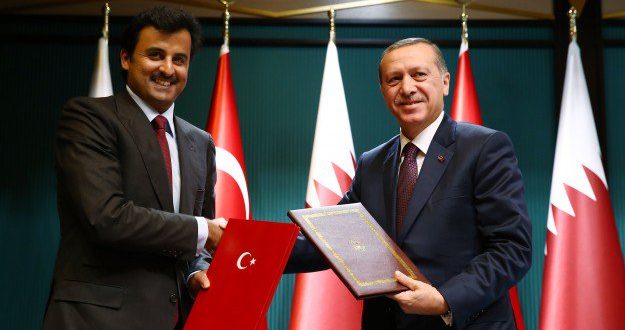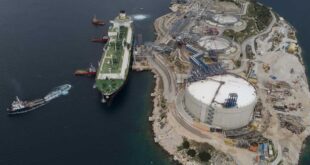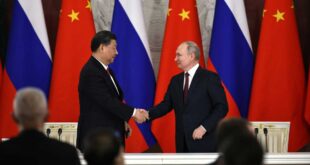Farzad Ramezani Bonesh
It is more than a few years that Benghazi and Tripoli, as the main centers of Libya in the east and west of the country, have been in conflict over getting the power in the country. Giving the escalation of the conflict in Libya and the expansion of Turkey’s all-out cooperation with Tripoli, the following article examines Turkey’s recent approach to Libya and its prospects.
Turkey’s return to the Ottoman’s glory
The Turks had a strategic view t the Mediterranean during the Ottoman period. With the establishment of the Justice and Development Party in Turkey, the policy of valuing strategic depth and neighbors under the guise of neo-Ottomanism emerged in Turkish foreign policy.
One of the main strategies of the Justice and Development Party of Turkey since taking power in this country has been to consolidate its regional power similar to the heyday of the Ottoman Empire. Therefore, the Justice and Development Party wants to bring the Ottoman glory back to Turkey with a wider presence in Libya.
Geopolitical alliance with Libya against the other actors in the Mediterranean
Using the maritime borders and proximity to the Mediterranean, Turkey was trying to be known as a powerful naval power in the Mediterranean. The consolidation of an alliance between Cyprus, Egypt, Greece and Israel and a wide economic, political and military cooperation between them is not in the interest of Turkey. In fact, the more expanded cooperation and joint military exercises of the rival actors have increased Turkey’s concern.
In addition, if Tripoli falls by Haftar’s forces, Turkey would become a alone and margined country in the Mediterranean, with a defensive position in geopolitical competitions.
Turkey fears that Libya, led by Haftar, will support the Republic of Cyprus and its sovereignty over its resources in the eastern Mediterranean. In this regard, increasing Turkey’s role in the Mediterranean is in line with strengthening its role in Libya.
Dealing with anti-Turkish coalitions in the Mediterranean
The Mediterranean is a relatively dangerous region in terms of limitation of territorial waters, the continental shelf and the exclusive economic zone. Thus, the 200-mile border for the countries’ exclusive economic zone in the international law and sea law in the case of the Mediterranean Sea is virtually impossible to enforce.
On November 1, 2019, however, Turkish President Recep Tayyip Erdogan signed two maritime agreements and security and military cooperation with Faiz al-Saraj, Prime Minister of the Libyan National Coalition GNA.
Greece and Cyprus, on the other hand, have maritime and territorial disputes with Turkey, and emphasize that the agreement between Turkey and Libya is invalidate. In addition, the dimensions of cooperation between Greece, Israel and Cyprus to build a 6 billion-euro pipeline in the eastern Mediterranean have made the game of geostrategic power in the region more obvious, contrary to Turkey’s interests.
Therefore, by trying to gain more points in Libya and unite with Tripoli, Turkey is trying to practically neutralize the anti-Turkish trend of alliances and coalitions in the eastern Mediterranean.
Supporting Muslim Brotherhood parties in the region
The North Africa is ideologically important for Turkey. Following the Morsi’s ouster from power in Cairo, relations between Turkey and Egypt have been soured and Turkey’s policies in support of the Muslim Brotherhood came to a standstill.
But Turkey’s efforts to pursue ideological programs and support the Brotherhood are at the heart of Ankara’s North African policy. So, part of Turkey’s support for Tripoli is linked to the Muslim Brotherhood’s plan to return to power in North Africa.
Expanding economic relations
In the past, the issue of economic cooperation overcame the political and social dimensions of Turkey’s presence in Libya. During Gaddafi’s tenure, Turkish companies invested billions of dollars in Libya. Before the fall of Gaddafi, there were about 130,000 Turkish citizens presented in the country.
But with the end of Gaddafi’s rule in Libya, Turkey companies experienced a loss of $19 billion and the role of Turkey in Libya was diminished. Turkey is now trying to secure its economic interests in Libya by more powerful economic presence and providing opportunities for Turkish companies in the Libyan market.
Cooperation with Libya in energy resources in the Mediterranean Sea
Libya may be self-sufficient in hydrocarbon resources, but Turkey (with about 75% dependence in energy sector) is looking for more cooperation with Libya to become a regional energy hub for trade and gas exports.
There are also about 122 trillion cubic feet of recyclable gas reserves in the Mediterranean basin. Therefore, after signing the Memorandum of Understanding on Security Cooperation and redrawing the maritime borders with the Al-Saraj government, Turkey could not be a loser in the common energy resources in the Mediterranean Sea.
On the other hand, with the further consolidation of the government in Tripoli, Turkey can take a better stand against the formation of an alliance of natural gas-producing countries around the Mediterranean Sea (Greece, Cyprus, Jordan, Jordan, Italy, Israel and the Palestinian Authority) to cooperate in energy exploitation in the Eastern Mediterranean in 2019.
.In addition, with the seizure of Libyan oil-rich areas by the Provisional government, Turkey could pay attention to imports from this close source, apart from investing in the Libyan oil sector.
Increasing the military position in North Africa
Turkey has previously tried to empower its presence in bases such as Qatar and Somalia, but further strengthening of the government allied with Turkey in Libya, will allow the Turkish military to dream more military presence in the southern Mediterranean and North Africa.
Vision
Turkey’s political behavior in Libya stems from a variety of factors and variables that are juxtaposed with each other according to different priorities, and ultimately lead to Ankara’s decision.
However, so far, by sending part of the Turkish military forces to Libya (at the request of Faiz al-Saraj), Tripoli has managed to stop the attacks of the Haftar forces and goes-ahead to the east.
However, it should be noted that the existence of two opposing ideologies of the Brotherhood movement in Turkey, as well as the secular nationalist movement in Egypt, may expand the scope of the proxy war in Libya.
However, nothing the reluctance of many actors to expand the Turkey’s influence in Libya, with the presence of more actors such as Russia, the United States, France and Egypt, the Ankara’s influence in Libya is not expected to be extended.
Farzad Ramezani Bonesh is a writer, senior researcher and analyst on regional issues, especially in the Persian Gulf and South Asia. He has previously served as chief editor of research desk at several Iranian research centers. He has written hundreds of research articles, short analysis and journalism in Persian and English. He has had many interviews with Iranian and international media such as Aljazeera , RT Arabic, Al Arabi and others.
 Geostrategic Media Political Commentary, Analysis, Security, Defense
Geostrategic Media Political Commentary, Analysis, Security, Defense





